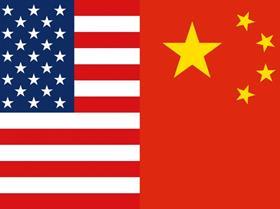
China has retaliated to a tariff increase from the US made last Friday 9 May, following a lag in agreement to level-out overall trade between the two nations.
Tariffs on around US$60bn of goods imported from the US to China will now be impacted. These do not include fresh fruits and vegetables but impact a number of processed fruit items and agricultural products, and add to the overall trade tension.
China’s ministry of finance said in a statement that the measures had led to escalation of trade frictions, contrary to the consensus between China and the United States on resolving trade differences through consultations. It said the move has jeopardised the interests of both sides and not met the general expectations of the international community.
The ministry noted that according to national foreign trade law and tariff regulations, the State Council Tariff Commission has decided on 1 June, 2019 tariffs will subsequently increase on imported goods.
There are four separate increases on different listed items. There will be a 25 per cent increase in tariff on 2,493 items; 20 per cent increase on 1,078 items, 10 per cent increase on 947 items, and a 5 per cent increase on 595 items.
A number of frozen fruit and vegetable lines like peas, spinach, berries, nuts, sweet potato and corn are impacted, as well as processing equipment like washing, sorting and grading machinery.
Feeling the strain
The ongoing tariff dispute, now in place for over a year, has made a mark on fresh produce trade between the two nations.
Data analysed by Fresh Intelligence Consulting shows China is becoming less reliant on the US as a supplier of imported fruit. Its main imports by value are cherries, oranges, table grapes and apples.
In 12 months to March 2019 China imported 79,439 tonnes of fresh fruit valued at US$219.3m. That was 47 per cent lower in value terms than in the same period the year prior.
In the first quarter of 2019, orange imports were 80 per cent lower in value compared with the same quarter in 2018, down to 7,500 tonnes from 33,000 tonnes respectively.
Egypt was noted as picking up some of the additional volume with a 10,000 tonne increase in the march quarter of 2019 compared with the year prior.



